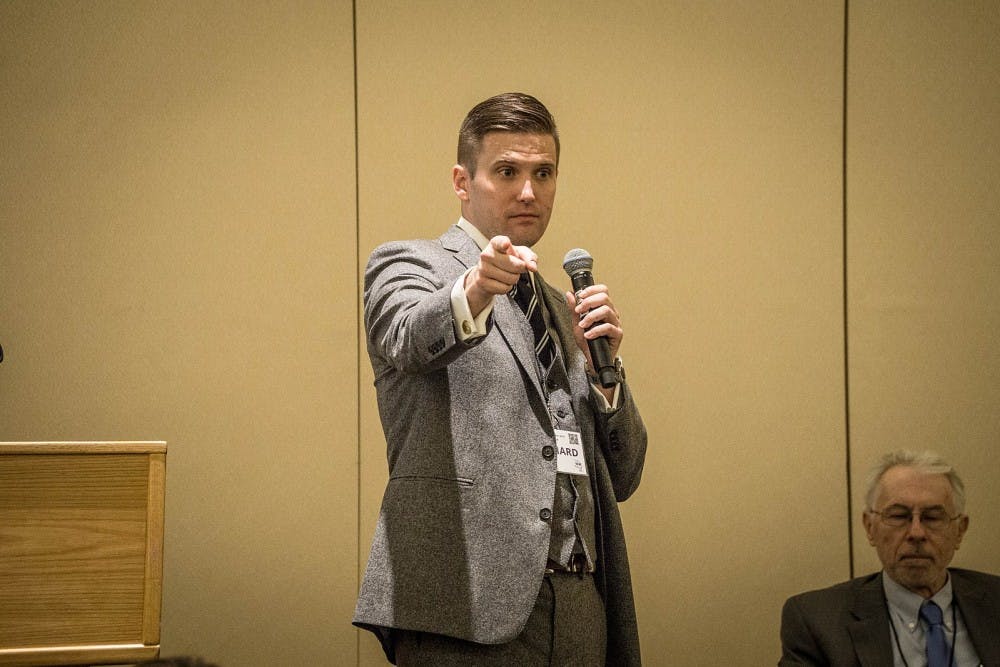Last September, The Cavalier Daily published an opinion column arguing that the Democratic Party should not move away from identity politics, which are “politics in which groups of people having a particular racial, religious, ethnic, social or cultural identity tend to promote their own specific interests or concerns without regard to the interests or concerns of any larger political group.” While the author articulated a valid argument in favor of using identity politics to advance advocacy for disinvested voters of different class and education backgrounds, it is possible that the implementation of such a strategy may lead to greater division among Americans.
One group seeking to divide Americans by identity is the alt-right, an ideology that rejects mainstream conservatism and supports white nationalism. Among other goals, the alt-right movement seeks to mobilize white Americans around their race in order to advance a political and social agenda. While practitioners have used identity politics to advocate for positive change in certain instances, the strategy as a whole remains problematic because of its tendency to divide Americans along their identity groups instead of unite them around shared principles and interests. In order to address the polarization that has crippled politics and effective discourse in America — as well as respond to the lingering effects of the “Unite the Right” rally — members of the Charlottesville and University communities must understand the detrimental role that identity politics has played.
The alt-right movement has adopted identity politics in their vision for a divided America. Richard Spencer — president of an alt-right think-tank called the National Policy Institute — envisions a “new society, an ethno-state that would be a gathering point for all Europeans.” However, his argument exposes the fundamental problems with identity politics. He assumes that all whites, because of their race, inherently hold similar interests and values. However, he and other proponents of white nationalism ignore the myriad of influences that inform any individual’s identity, such as education, religion, class and other factors.
The alt-right, as well as those from other leaders and movements using identity politics, seek to divide Americans and highlight their differences over the similarities. However, common principles unite Americans despite political affiliation. According to a University of Michigan study, 90 percent of Americans believe in affording equal opportunities to all people. While the methods of extending those opportunities may vary along political lines, a guiding principle unites the people as a whole. The same study found that nine in 10 Americans opposing a U.S. policy did so in order to improve the country. Although legislators from both parties often disagree on policy, they all swear to defend the Constitution. These shared principles say more about our country than our differences.
It is the commonalities among citizens of different identity groups that lend America is strength. The United States remains successful because the fabric of the nation is grounded in ideas such as liberty and the right to self-determination — and its citizens are free to express their identities without interference on behalf of the state.
In order undermine the goals of individuals like Spencer and Jason Kessler, the organizer of last year’s “Unite the Right” rally, we must unify members of the University and Charlottesville communities around the common principles of freedom and equality. Spencer and Kessler just want to spread discord among our community. Instead of letting petty differences hinder us from acting, we must respond with strength and unity.
The fabric of the United States are values enshrined in the Constitution. A common interest in defending civil liberties and equality before the law has unified Americans around common causes in the past, and will continue to do so in our nation’s future. When Martin Luther King, Jr. led the Civil Rights movement, he did not seek to create a country divided along racial lines. Instead, he envisioned a nation that respected the dignity of each of its members. As citizens, we must work to advance the interests of all Americans and remember our shared principles when some attempt to divide us.
Thomas Ferguson is an Opinion Columnist for The Cavalier Daily. He can be reached at t.ferguson@cavalierdaily.com.







